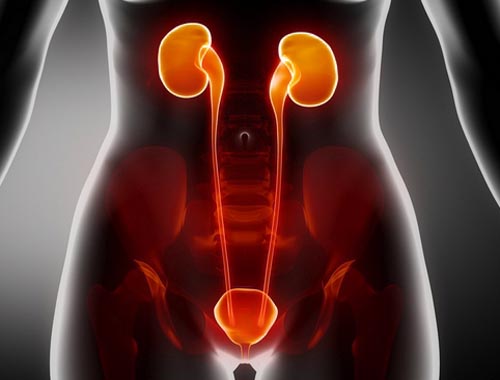DDxHub Differential Diagnosis Hub reference
 Published: 16 Apr 2023
Published: 16 Apr 2023

Thyroid-stimulating hormone (TSH), which is secreted by the pituitary gland, controls secretion of thyroid hormone in the thyroid. Measuring TSH is considered the best way to measure thyroid function.
Testosterone (free testosterone)
Both men and women produce testosterone and both experience what can be dramatic declines in the hormone as they age. The hormone helps to regulate muscle mass, as well as fertility, libido, and one's sense of wellbeing. In women, high levels of free testosterone might indicate low estrogen levels, or be a cause of excessive unwanted hair growth or polycystic ovarian syndrome.Generally, less than two percent of testosterone in the blood is in the free state, which means it is free to circulate in the brain and nervous system. Hyperthyroidism occurs with increased thyroid activity and lower-than-normal blood levels of TSH. Thyroid imbalances can cause many or no symptoms. Men produce testosterone in the testes, while women produce it in their ovaries. These imbalances have been linked in studies to irregular heartbeat, atherosclerosis, low bone mineral density, and a host of nonspecific symptoms, from fatigue to heat intolerance. Too much TSH in the blood suggests hypothyroidism, or too little activity. Free testosterone levels can be linked to abdominal obesity, unhealthy bones, heart disease, and depression.
This can serve as a measure of the health of your kidneys and lungs.
Chloride: Normal range is 96 to 106 mmol/L. BMP assists your doctor in making diagnoses, aiding in normal health screenings, or monitoring the effects of drugs you are taking, such as those for high blood pressure. Additionally, calcium aids in regular blood clotting.
Carbon dioxide: Normal range is 23 to 29 mmol/L. This is another byproduct of renal function that demonstrates the health of your kidneys.The health of cells is greatly influenced by this mineral.
Sodium: Normal range is 136 to 144 mEq/L (136 to 144 mmol/L). Blood sugar, or glucose, is an important source of energy for your body, but having too much or too little of it can cause problems.
Potassium: Normal range is 3.7 to 5.2 mEq/L (3.7 to 5.2 mmol/L). This mineral is essential for ensuring that blood, tissues, and cells have adequate water to function properly.
Blood urea nitrogen: Normal range is 6 to 20 mg/dL (2.14 to 7.14 mmol/L). Before this test, you might need to fast for up to 12 hours.
BMP includes:
Calcium: Normal range is 8.5 to 10.2 mg/dL (2.13 to 2.55 mmol/L). Your kidneys produce this naturally, and the amount you have can tell you how well they're working.
Glucose: Normal range is 64 to 100 mg/dL (3.55 to 5.55 mmol/L). Basic metabolic panel evaluates blood urea nitrogen, glucose, sodium, potassium, calcium, chloride, carbon dioxide, and creatinine, which can help determine renal function, electrolyte balance, and fluid balance. Your cells require calcium to function properly. This is a measurement of the fluid balance in your body.
Creatinine: Normal range is 0.8 to 1.2 mg/dL (70.72 to 106.08 Ámol/L).